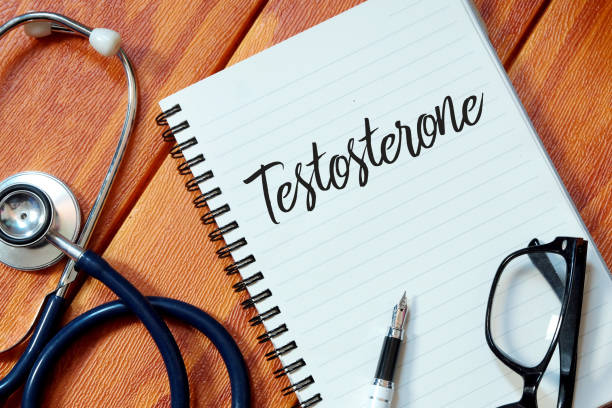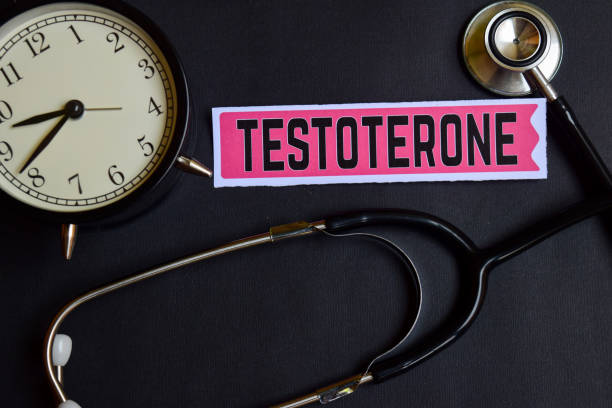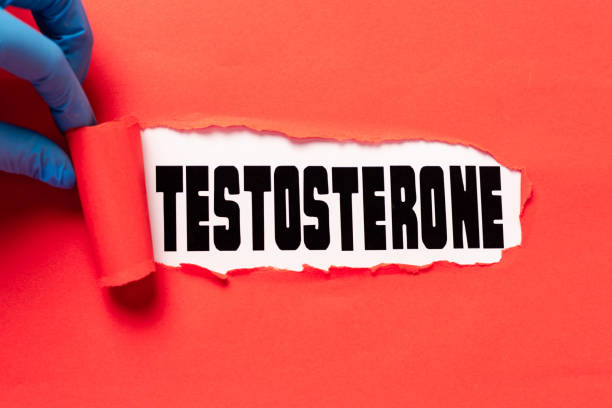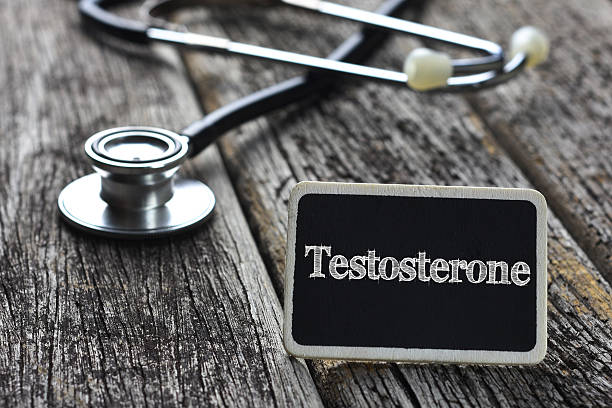Introduction: Why Testosterone Matters
Testosterone is an essential hormone that plays a key role in several important aspects of your health. It helps with muscle growth, fat distribution, mood regulation, and energy levels. As men get older, their testosterone levels naturally decline, which can lead to common symptoms like fatigue, low libido, and trouble building muscle. While supplements and medications can help, they aren’t the only options available to you. By making simple and effective changes to your diet and exercise routine, you can naturally support and boost your testosterone production.
In this guide, we will explore the best ways to increase testosterone through healthy dietary choices and regular exercise, helping you restore your energy, improve your mood, and enhance your overall health.
Understanding Testosterone and Its Role in Your Health
Before we explore how to boost testosterone, it’s important to understand what this hormone does for your body. Testosterone is the main male sex hormone and plays a critical role in:
- Building muscle mass and strength
- Maintaining bone density
- Managing fat distribution
- Supporting red blood cell production
- Regulating sexual drive and function
- Enhancing mood and mental clarity
As you age, typically starting around age 30, your testosterone levels begin to decrease. This natural decline can lead to several common symptoms, including low energy, a loss of muscle mass, increased fat accumulation, and even mood swings. Luckily, lifestyle changes can help you maintain healthy testosterone levels as you get older.

How Diet Affects Testosterone Production
Your diet plays a significant role in maintaining healthy testosterone levels. The foods you eat provide the essential nutrients your body needs to either support or hinder testosterone production. Certain vitamins, minerals, and other nutrients are particularly important for boosting testosterone, while others can negatively impact its production. Understanding how specific foods and nutrients influence testosterone can help you make better dietary choices to support hormone balance and overall health. Here’s how different foods and nutrients affect testosterone levels.
1. Foods High in Zinc
Zinc is an essential mineral that plays a key role in the production of testosterone. When you don’t get enough zinc, your testosterone levels can drop, leading to potential health issues. Incorporating zinc-rich foods into your daily diet is an effective way to support healthy testosterone production. Some of the best food sources of zinc include:
- Oysters and other shellfish
- Red meat, particularly beef and lamb
- Pumpkin seeds
- Chickpeas
- Cashews
Including these foods in your meals can help ensure your body has the zinc it needs to maintain optimal testosterone levels.
2. Healthy Fats Promote Testosterone
Testosterone is a fat-soluble hormone, which means it needs fats to be properly produced and balanced in your body. Healthy fats, especially those from monounsaturated fats and omega-3 fatty acids, are vital for keeping testosterone levels stable. By including the right types of fats in your diet, you can support your body’s ability to produce testosterone naturally. Some of the best sources of healthy fats include:
- Avocados
- Olive oil
- Fatty fish, such as salmon, mackerel, and sardines
- Nuts and seeds, including almonds, walnuts, and flaxseeds
Incorporating these healthy fats into your meals can help ensure your testosterone levels remain balanced and support overall health.
3. Vitamin D and Testosterone
Vitamin D is an essential nutrient that plays a significant role in boosting testosterone production. Research indicates that men with higher vitamin D levels often have higher testosterone levels as well. One of the best ways to support testosterone through vitamin D is by ensuring you get enough of it. You can increase your vitamin D intake from sources like:
- Sun exposure (try to get 10-30 minutes of sunlight each day)
- Fatty fish such as salmon and mackerel
- Fortified foods like milk, cereal, and orange juice
- Vitamin D supplements
Adding these vitamin D-rich foods and habits to your routine can help maintain healthy testosterone levels and improve overall health.
4. Cruciferous Vegetables and Testosterone
Cruciferous vegetables, such as broccoli, cauliflower, and Brussels sprouts, are great for maintaining healthy testosterone levels. These vegetables help balance hormones by lowering excess estrogen in the body. Estrogen, a hormone typically found in higher amounts in women, can interfere with testosterone production when it’s present in too much quantity in men. By eating more cruciferous vegetables, you can naturally support a healthy balance of hormones and promote optimal testosterone levels. Adding these vegetables to your diet is an easy way to help keep your testosterone levels in check.

The Impact of Exercise on Testosterone
Along with a balanced diet, regular exercise is one of the most powerful ways to naturally increase testosterone levels. Different types of exercise can have different impacts on testosterone production, so it’s important to focus on the most effective workout routines. High-intensity workouts, strength training, and activities that involve large muscle groups tend to have the biggest positive effect on testosterone levels. By choosing the right types of exercise, you can support your body’s ability to produce testosterone and improve your overall health and fitness.
1. Strength Training and Weightlifting
Strength training is one of the most effective exercises for boosting testosterone levels. Lifting weights helps challenge your muscles, which signals your body to produce more testosterone to assist with muscle recovery and growth. Research has shown that resistance training, particularly exercises like squats, deadlifts, and bench presses, can lead to a significant increase in testosterone production.
For the best results, aim for:
- 3 to 4 strength training sessions per week
- Compound exercises that target multiple muscle groups at once
- Heavy weights with low to moderate reps (6-12 reps per set)
By incorporating these strategies into your workout routine, you can naturally enhance testosterone production and improve your muscle strength and overall fitness.
2. High-Intensity Interval Training (HIIT)
High-intensity interval training (HIIT) is a powerful workout method that involves alternating between short bursts of intense exercise and brief rest periods. This style of training has been shown to naturally increase testosterone levels in both men and women. By combining cardiovascular exercises with strength training movements, HIIT is an excellent way to enhance overall fitness while boosting testosterone production.
Here are some effective HIIT exercises to try:
- 30-second sprints followed by 1 minute of walking
- Jump squats or burpees for 20 seconds, followed by 10 seconds of rest
- Bodyweight exercises, like push-ups and lunges, performed in a high-intensity circuit
Incorporating HIIT into your workout routine can help you burn fat, improve endurance, and stimulate natural testosterone production.
3. Avoid Overtraining
While regular exercise is crucial for boosting testosterone, overtraining can actually lower testosterone levels. When you push your body too hard with intense, long workouts without giving it enough time to recover, it can lead to higher cortisol levels. Cortisol is a stress hormone that can interfere with testosterone production and slow down muscle recovery. To maintain a healthy balance, make sure you allow your body sufficient time to rest and recover between workouts. Don’t skip rest days, as they are just as important for maintaining optimal testosterone levels and overall well-being.
Lifestyle Habits That Support Healthy Testosterone Levels
While diet and exercise are key factors in boosting testosterone, your overall lifestyle also plays a major role in maintaining healthy testosterone production. Factors like sleep quality, stress management, and avoiding harmful habits can all affect hormone balance. By adopting healthy lifestyle habits, you can support your body’s ability to produce testosterone naturally and improve your overall well-being. Let’s take a look at some of the most important lifestyle habits to consider for maintaining healthy testosterone levels.
1. Get Enough Sleep
Sleep is essential for hormone production, including the production of testosterone. Research has shown that men who get less than 5 hours of sleep each night often experience a noticeable drop in their testosterone levels. To support healthy testosterone production, aim for 7 to 9 hours of quality sleep each night. Creating a sleep-friendly environment can help improve your sleep quality and hormone balance. Here are some tips to promote better sleep:
- Limit screen time before bed to reduce exposure to blue light
- Stick to a consistent sleep schedule, even on weekends
- Keep your bedroom dark, quiet, and cool to encourage restful sleep
By prioritizing sleep, you can help your body produce testosterone more effectively and improve your overall health.
2. Manage Stress
Chronic stress can cause an increase in cortisol levels, which can suppress testosterone production. To maintain a healthy balance of hormones, it’s important to manage stress effectively. Stress-reducing techniques, such as meditation, deep breathing exercises, yoga, or simply spending time in nature, can help lower cortisol levels and support healthy testosterone production. Managing stress doesn’t just help your hormones; it also promotes better overall health, improves mood, and enhances your well-being. By incorporating stress management practices into your daily routine, you can help keep your testosterone levels in check and boost your quality of life.
3. Maintain a Healthy Weight
Carrying excess body fat, particularly around the abdomen, can lead to a decrease in testosterone levels. Fat cells produce estrogen, a hormone that can interfere with the production of testosterone. To keep your testosterone levels balanced, it’s important to maintain a healthy weight. This can be achieved through a combination of a balanced diet and regular physical activity. By focusing on eating nutrient-rich foods and staying active, you can support your body in maintaining a healthy weight, which in turn helps optimize testosterone production and improve overall health.

Foods and Habits to Avoid
While some foods and habits can help support testosterone production, others can have a negative impact. To maintain healthy testosterone levels, it’s important to avoid the following:
- Excessive alcohol consumption: Drinking too much alcohol can lower testosterone levels and interfere with hormone production.
- Processed foods and sugar: A diet high in sugar and processed foods can lead to insulin resistance, which negatively affects testosterone production.
- Soy products: Some studies suggest that consuming too much soy may reduce testosterone levels because of its estrogen-like compounds.
By avoiding these habits and making healthier choices, you can help support your body’s ability to produce testosterone naturally and maintain hormone balance.
Conclusion: Take Control of Your Testosterone Levels
Boosting testosterone naturally through diet and exercise is an effective way to enhance your overall health, energy, and vitality. By adding zinc-rich foods, healthy fats, vitamin D, and strength training to your daily routine, you can support your body’s ability to produce testosterone without relying on medications or supplements.
Consistency is key to success. Start with small, manageable changes to your lifestyle, and over time, you’ll notice improvements in your energy, mood, and physical performance.
Are you ready to take charge of your testosterone levels? Begin by incorporating these simple strategies into your routine and share your experiences with us! Let us know how you feel after trying these tips, or if you have any other natural ways to boost testosterone that you’d like to share. We’d love to hear from you!

